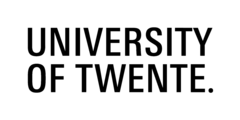Communication Science

We often think we know exactly why we do what we do, and that our behaviour is rational. But did you know that only 5% of our behaviour is conscious, and the rest is unconsciously influenced by interactions with others and technologies? As a Communication Science student at the University of Twente, you will learn how communication, design and technology - such as social media, games or even the layout of a store - subconsciously influence our behaviour.
Human interactions and tech are key to many things in human life. On a private level, they not only shape our identity, but also affect our attitudes and behaviours (think of how smartphone use influences the things we like, see and buy). On an organisational level, interactions foster for example organisational identification and leadership. Finally, on a societal level, social interactions both facilitate and hamper issues like polarisation, democratic distrust, and inequality. This challenging programme addresses all three levels and will help you understand how interaction processes work and will equip you with the skills needed to tackle the social-technical problems of today.
100% futureproof
To prepare you for the future, the programme is structured around three contemporary themes:
- Digital Society
- Changing Organisations
- Persuasive Tech.
In our modules, we combine relevant subdisciplines of communication science like organisational communication, marketing communication and media communication with related disciplines such as social psychology and human-tech interaction.
- Pažymių išrašas - jei dar nesi baigęs mokyklos, būtina prisegti pažymių išrašą. Smulkesnę informaciją kaip pildyti išrašą ir kada jis reikalingas, rasi čia.
- Brandos atestatas – jei jau esi baigęs mokyklą, išrašo nereikia, užtenka prie anketos prisegti savo Brandos atestatą.
SVARBU! Stojimo mokestis - universitetas taiko 100 EUR stojimo mokestį, kurį privalai susimokėti aplikuodamas į jį (kai atsiųsi stojimo anketą, tau bus paaiškinta kaip tai padaryti). ČIA gali rasti daugiau informacijos apie šį mokestį ir kodėl jis yra taikomas.
Pastaba!
- CV - stojant į visas bakalauro programas reikia pateikti savo CV.
- Motyvacinis laiškas yra NEprivalomas dokumentas stojant į šio universiteto programas, išskyrus:
- Advanced Technology
- Chemical Science and Engineering
- Vienas iš stojimo etapų į University of Twente yra Matching/Selection procedure (reikės atlikti papildomas užduotis-dažniasiai klausimynas).
Anglų kalbos žinias gali patvirtinti vienu iš šių būdų:
- turėti anglų kalbos pažymį Brandos atestate ir išlaikyti Anglų kalbos valstybinį egzaminą ne mažiau kaip 36 balais.
arba
- išlaikyti IELTS arba TOEFL testą.
*Jeigu nori pasitikrinti ar tavo anglų kalbos žinios yra pakankamos studijuoti Nyderlandų aukštosiose – suteikiame galimybę laikyti Oxford anglų kalbos testą. Nors anglų kalbos testas nėra reikalaujamas, patartina žinoti savo galimybes ir kalbos lygį.
Stojant į į University of Twente programas būtina laikyti ne mažiau kaip 3 valstybinius egzaminusir juos išlaikyti ne mažiau 36 balais.
Stojant į Communication Science programą būtina:
- Matematiką - mokytis bendruoju (B) arba aukštesniuoju (A) lygiu ir išlaikyti valstybinį egzaminą.
- Likę, 2 būtini valstybiniai egzaminai pasirinktinai (vienas iš 2 gali būti anglų kalbos egzaminas).
Visi, kurie dar nėra pabaigę mokyklos ir į šį universitetą stoja besimokydami 12 klasėje, kartu su pažymių išrašu privalo prisegti ir numatomų egzaminų formą. Norėdami rasti ir atsisiųsti numatomų egzaminų formą reikia:
- Užsiregistruoti Kastu svetainėje;
- Pradėti pildyti Kastu internetinę stojimo anketą;
- Pridėti dominančią University of Twente bakalauro programą prie savo pasirinkimų.
Kai atliksite šiuos veiksmus, skiltyje „Dokumentai“ galėsite atsisiųsti numatomų egzaminų formą.
There are all kinds of opportunities in the job market for communication scientists. During the programme, we prepare you for these opportunities by introducing you to a variety of possible future jobs. To give you an idea, you will find below twelve of the most frequently occurring positions acquired by our Communication Science graduates.
- UX (user experience) Designer
- Big Data, Search & Conversion Marketer
- Campaign Manager
- Media Designer
- Social Media Agent
- Online Privacy Specialist
- Marketing & Communication Policy Advisor
- Digital Marketing Manager
- Public Relations Officer
- Crisis Manager
- Trend Watcher
- Copywriter and SEO Marketer

